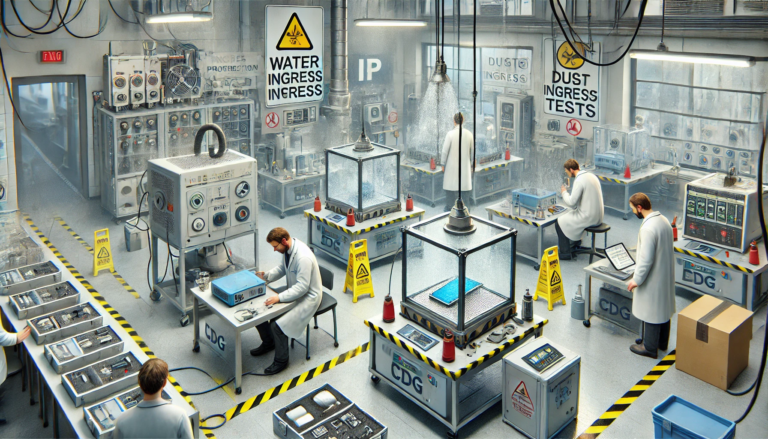In today’s technology-driven world, ensuring that devices withstand various environmental conditions is more critical than ever. Whether it’s a smartphone enduring accidental spills or an industrial sensor exposed to dust and moisture, ingress protection (IP) ratings play a pivotal role in product design. One of the most robust ratings is IP67. But what does it mean, and how does it influence the design process? Let’s dive into the fascinating world of IP67 and discover its impact on product design.
Understanding IP67: The Basics
The IP67 rating is a standard set by the International Electrotechnical Commission (IEC) under the IEC 60529 classification system. It stands for “Ingress Protection” and denotes how well a product is protected against solids and liquids. Specifically, IP67 means:
Complete protection against dust ingress.
Protection against immersion in water up to 1 meter deep for up to 30 minutes.
This rating indicates that a product is highly resistant to dust and capable of withstanding temporary submersion in water, making it ideal for challenging environments.
The Design Implications of IP67
- Material Selection and Sealing
To achieve an IP67 rating, a product’s design must prioritize material selection and sealing techniques. Designers often use materials such as silicone, rubber, or specialized gaskets to create waterproof and dustproof barriers. The choice of materials ensures that sensitive components are shielded from environmental factors.
For instance, in the design of an IP67-rated smartphone, manufacturers use tight-fitting seals around ports and buttons, and employ coatings on internal circuits to prevent damage from dust and moisture.
- Structural Design Considerations
Structural integrity is crucial for maintaining an IP67 rating. Designers need to ensure that all potential points of ingress, such as seams, joints, and openings, are meticulously sealed. This often involves engineering complex enclosures that are not only durable but also lightweight.
For example, an IP67-rated smartwatch must have a robust casing that prevents water and dust from entering through the watch face, buttons, or charging ports, while still being comfortable for everyday wear.
- Impact on Product Durability and Longevity
An IP67 rating contributes significantly to a product’s durability. By preventing dust and water ingress, it helps extend the life of electronic devices and reduces maintenance needs. This is particularly valuable for products used in harsh environments, such as outdoor equipment, industrial sensors, and medical devices.
Consider rugged tablets used in construction sites. An IP67 rating ensures that these tablets remain functional despite exposure to dust and occasional water splashes, thus enhancing their longevity and reliability.
Practical Tips for Achieving IP67 Rating
Thorough Testing: Regular testing for both dust and water resistance during the design phase is essential to meet IP67 standards.
Precision in Design: Pay close attention to every detail in the design phase, including seals and enclosures, to avoid potential vulnerabilities.
Component Selection: Choose high-quality materials and components that contribute to the overall robustness of the product.
Real-World Applications
IP67-rated products are ubiquitous in various sectors:
Consumer Electronics: Smartphones, tablets, and wearables often feature IP67 ratings to handle everyday spills and dust exposure.
Industrial Equipment: Machinery and sensors used in dusty or wet environments benefit from IP67 protection to ensure reliable operation.
Outdoor Gear: Products like GPS devices and cameras designed for outdoor use leverage IP67 ratings to endure challenging weather conditions.
The IP67 rating is more than just a number; it’s a testament to a product’s resilience and ability to perform under adverse conditions. By understanding and implementing IP67 standards, designers can create products that not only meet but exceed user expectations for durability and reliability.
If you’re involved in product design or manufacturing, consider how the IP67 rating can enhance your offerings. For specialized ingress protection testing and to ensure your products meet these high standards, contact us at CDG. Our expertise in IP testing can help you achieve the robust design you need.


